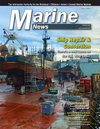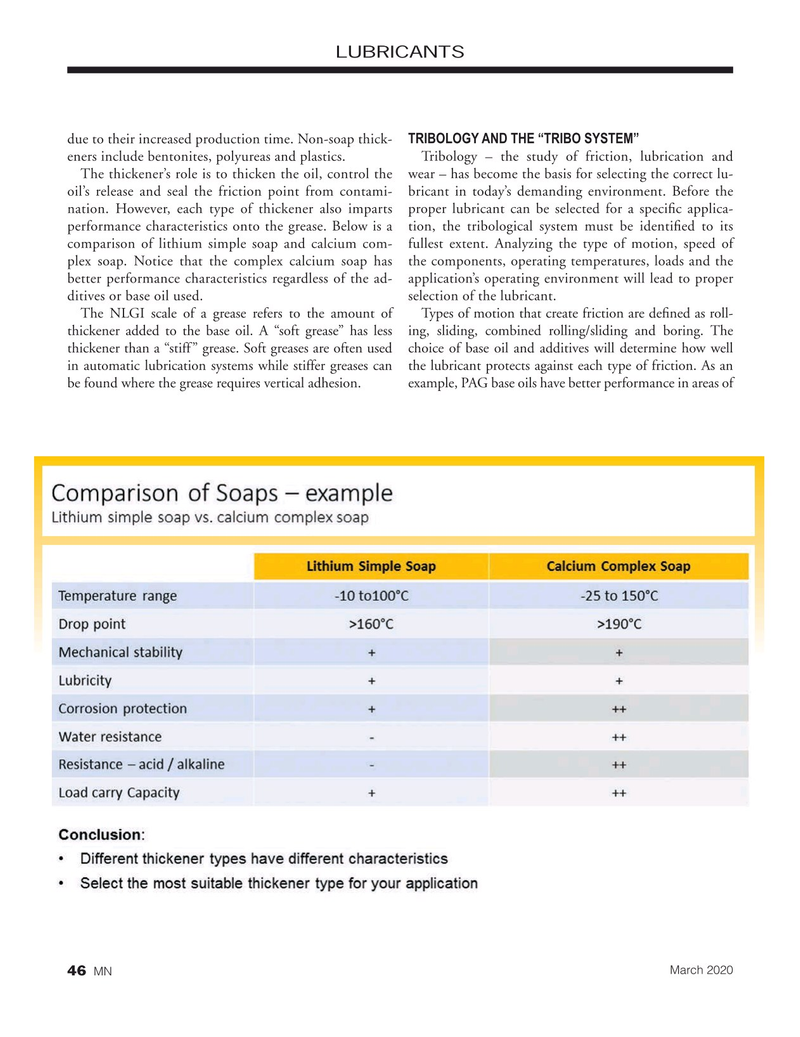
Page 46: of Marine News Magazine (March 2020)
Workboat Conversion & Repair
Read this page in Pdf, Flash or Html5 edition of March 2020 Marine News Magazine
LUBRICANTS due to their increased production time. Non-soap thick- TRIBOLOGY AND THE “TRIBO SYSTEM” eners include bentonites, polyureas and plastics. Tribology – the study of friction, lubrication and
The thickener’s role is to thicken the oil, control the wear – has become the basis for selecting the correct lu- oil’s release and seal the friction point from contami- bricant in today’s demanding environment. Before the nation. However, each type of thickener also imparts proper lubricant can be selected for a speci? c applica- performance characteristics onto the grease. Below is a tion, the tribological system must be identi? ed to its comparison of lithium simple soap and calcium com- fullest extent. Analyzing the type of motion, speed of plex soap. Notice that the complex calcium soap has the components, operating temperatures, loads and the better performance characteristics regardless of the ad- application’s operating environment will lead to proper ditives or base oil used. selection of the lubricant.
The NLGI scale of a grease refers to the amount of Types of motion that create friction are de? ned as roll- thickener added to the base oil. A “soft grease” has less ing, sliding, combined rolling/sliding and boring. The thickener than a “stiff” grease. Soft greases are often used choice of base oil and additives will determine how well in automatic lubrication systems while stiffer greases can the lubricant protects against each type of friction. As an be found where the grease requires vertical adhesion. example, PAG base oils have better performance in areas of
March 2020 46 MN

 45
45

 47
47
